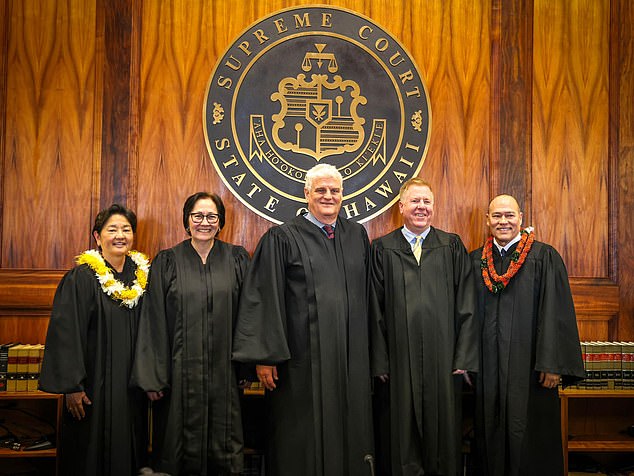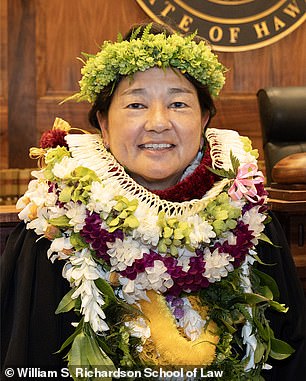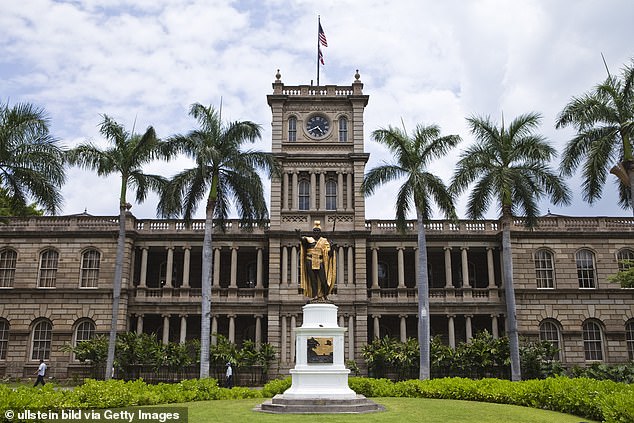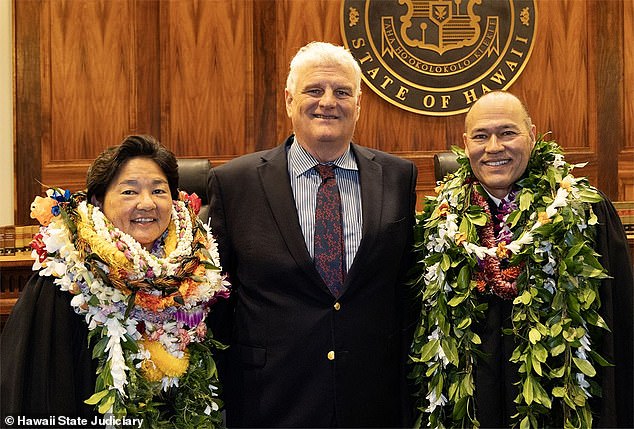The Hawaii Supreme Court has ignored recent Supreme Court precedent in a recent case and upheld state laws that Prohibit carrying a firearm without a license in public.
“The spirit of Aloha clashes with a federally mandated lifestyle that allows citizens to walk around with deadly weapons during everyday activities,” Judge Todd Eddins wrote in a unanimous 5-0 decision.
In Wednesday’s ruling, the court said it disagreed with recent U.S. Supreme Court rulings interpreting the right to bear arms under the Second Amendment, which is also repeated almost verbatim in Article 1, Section 17 of the Hawaii State Constitution.
“We read those words differently than the current United States Supreme Court,” Eddins wrote. “We maintain that in Hawaii there is no state constitutional right to carry a firearm in public.”
Rather, the court held, the right was “focused on the militias.”
The Hawaii Supreme Court upheld state laws that generally prohibit carrying a firearm without a license in public, deviating from precedent set by the U.S. Supreme Court.


Michael Wilson (left) and Todd W. Eddins (right) were among the justices who affirmed that the Second Amendment “collides with the spirit of Aloha.”
The court also reversed a lower circuit court’s dismissal of two charges filed against Paia man Christopher Wilson, 47, after he was arrested for criminal trespassing while carrying an unregistered handgun.
The case against Wilson dates back to December 2017, when Flyin Hawaiian Zipline owner Duane Ting saw men on his fenced property and called Maui police.
When officers arrived, Wilson said he had a gun in the front of his waistband. Police lifted his shirt and found a Phoenix Arms .22 LR pistol, loaded with ten rounds of .22 caliber ammunition.
Wilson said he legally purchased the gun in Florida in 2013. A records check showed that the gun was not registered in Hawaii and that Wilson had not obtained or applied for a permit to possess a gun.
The Maui County Prosecutor’s Department charged Wilson with four counts. Two of the charges, improper storage of a firearm and improper storage of ammunition, fall under Hawaii’s “storage location” laws.
The Paia man was also charged with violating permits to acquire ownership of a firearm and first-degree criminal trespass.
Wilson filed two motions to dismiss the charges. On the second attempt, following the 2022 ruling in New York State Rifle & Pistol Ass’n, Inc. v. Bruen, he successfully appealed and the charges were dismissed in circuit court.
Wilson claimed that the law enforcement location subverted his constitutional right to protect himself in public while carrying a deadly weapon.

The justices declared that “there is no state constitutional right to carry a firearm in public”


The ruling was a unanimous 5-0 decision. Pictured: Judges Lisa M. Ginoza (left) and Sabrina Shizue McKenna (right)
However, the State appealed the dismissal in addition to challenging Wilson’s position, arguing that Wilson did not bother to apply for a carry license and comply with Hawaii’s license to carry law.
Therefore, they argued, Wilson could not claim that his right to bear arms had been impeded.
The case reached the Supreme Court, where the justices affirmed Wilson’s right to challenge the constitutionality of the law-keeping location.
“A criminal defendant has the ability to launch a constitutional attack against the crime charged,” Eddins wrote.
However, he argued, Wilson lacked standing to challenge Hawaii law’s carry licenses, since the State did not charge him with violating it and Wilson made no attempt to obtain a carry license.
“Conventional interpretative modalities and Hawaii’s historical tradition of firearms regulation rule out an individual right to keep and bear arms under the Hawaiian Constitution,” Eddins wrote in the 5-0 decision.
“In Hawaii, there is no state constitutional right to carry a firearm in public.”
He further added: ‘The history of the Hawaiian Islands does not include a society in which armed individuals move through the community to possibly combat the deadly objectives of others.

The court also reversed a lower circuit court’s dismissal of two charges filed against Christopher Wilson, 47, of Paia, after he was arrested for criminal trespassing while carrying an unregistered handgun.
‘The government’s interest in reducing gun violence through reasonable gun regulations has preserved peace and tranquility in Hawai’i. A free right to bear arms in public degrades other constitutional rights.’
Laws regulating firearms in public promote the rights to life, liberty, and the pursuit of happiness, Eddins wrote.
He also criticized Bruen, writing: “Traveling back in time to 1791 or 1868 to understand how a state regulates lethal weapons – under the democratic design of the Constitution – is a dangerous way to look at the federal constitution.”
The Hawaii Supreme Court is made up of three Democratic-appointed governors and two Republican-appointed justices.

